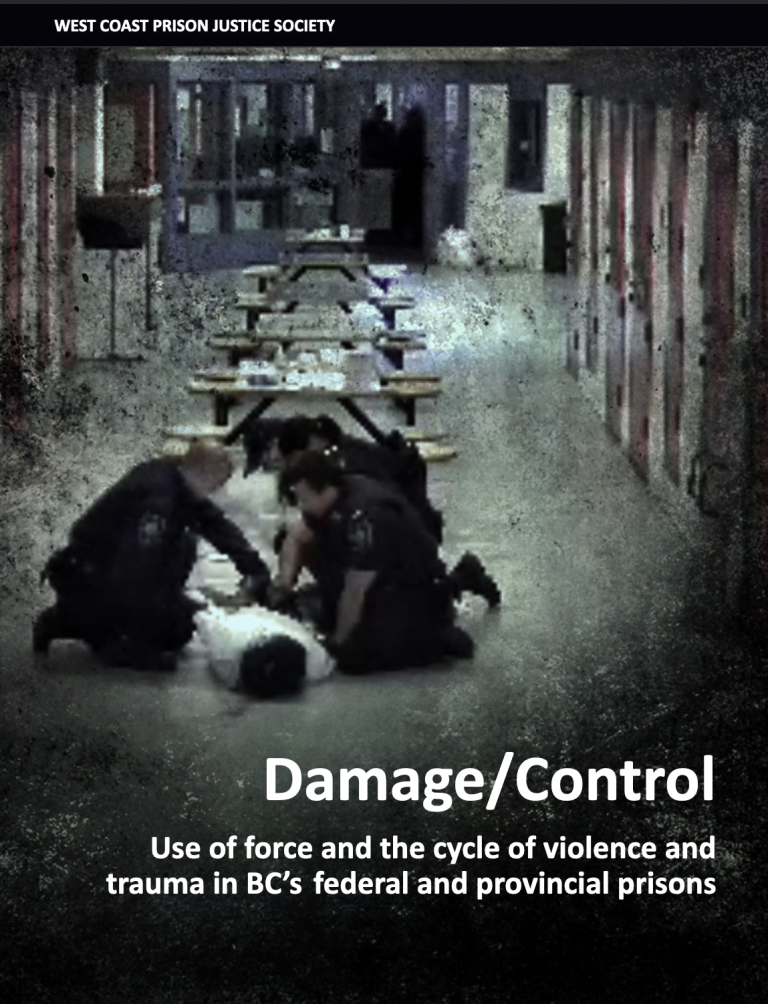87 search results
To Correctional Service Canada
Regarding use of force policy and practice
Recommendation 51: Consider the removal, display, or threatened use of spray irritants, and threats to bring the ERT, reportable uses of force.-
Category and theme:
Audience:
Groups affected:
To Correctional Service Canada
Regarding training
Recommendation 52: Expand training on conflict resolution, de-escalation skills, nonviolent crisis intervention and working with people with mental health disabilities. This should be designed in conjunction with mental health experts and people with lived experience.-
Category and theme:
Audience:
To Correctional Service Canada
Regarding training
Recommendation 53: Require advanced training in working with people with mental health disabilities for all staff working on mental health units, in treatment centres, in segregation/SIUs, and as members of Emergency Response Teams as a prerequisite for performing these roles. Require regular refresher courses.-
Category and theme:
Audience:
To Correctional Service Canada
Regarding prisoners with mental health needs
Recommendation 54: Create specialized officer-nurse teams at treatment centres and maximum and medium institutions to respond to situations involving emotional or medical distress using joint decision-making. This could follow models in the community that pair specially trained police with psychiatric nurses to respond to emergencies involving people with mental health issues.-
Category and theme:
Audience:
To Correctional Service Canada
Regarding prisoners with mental health needs
Recommendation 55: Develop an alternative model for identifying and responding to prisoners with mental health disabilities in crisis in partnership with mental health experts (including experts in forensic psychiatry) and people with lived experience. This includes prisoners in emotional distress (such as prisoners who are self-harming) as well as prisoners who are experiencing behavioural emergencies connected with their disabilities. These responses should be supportive and traumainformed rather than punitive.-
Category and theme:
Audience:
To Correctional Service Canada
Regarding prisoners with mental health needs
Recommendation 56: Eliminate the use of Emergency Response Teams in regional treatment centres and on mental health units. Ensure decisions to deploy the ERT consider the potential traumatic impact of the team on the prisoner and weigh the potential for psychological harm against the potential benefit of using this high level of force. Amend policy to reflect this.-
Category and theme:
Audience:
To Correctional Service Canada
Regarding prisoners with mental health needs
Recommendation 57: Have senior mental health practitioners review all uses of force against prisoners with mental health disabilities.-
Category and theme:
Audience:
To Correctional Service Canada
Regarding prisoners with mental health needs
Recommendation 58: Amend policy so that only healthcare staff can authorize and manage interventions to address self-harm and suicidality, including suicide smocks, observation cells and and Pinel restraints based on clinical need. Pinel restraints should only be used in psychiatric facilities.-
Category and theme:
Audience:
To Correctional Service Canada
Regarding prisoners with mental health needs
Recommendation 59: As long as Pinel restraints are administered by correctional staff, consider their application a reportable use of force.-
Category and theme:
Audience:
To Correctional Service Canada
Regarding prisoners with mental health needs
Recommendation 60: Involve healthcare leadership in selecting and training officers for all treatment centres and mental health units.-
Category and theme:
Audience:
